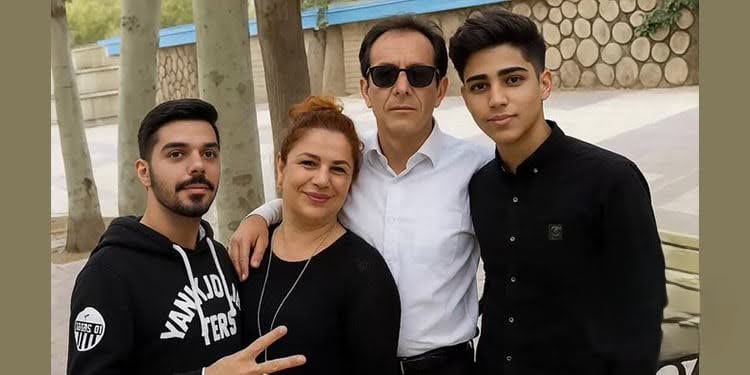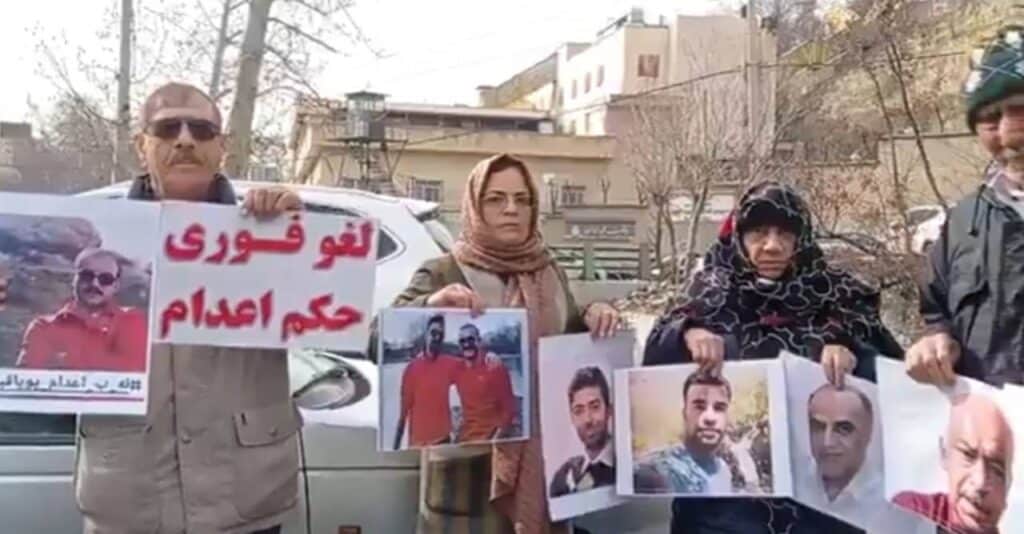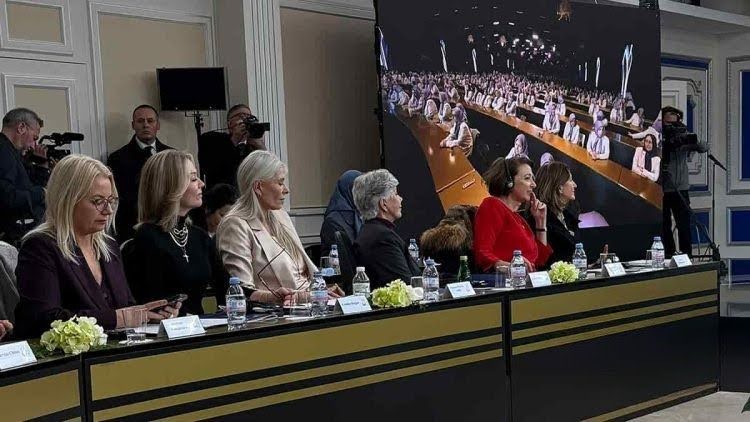The ruling Iranian regime has launched a new wave of repression that goes beyond political prisoners themselves and directly targets their families. This policy of collective punishment – known in German as “Sippenhaft” – has become a systematic tool of intimidation. Families of Iranian political prisoners are arbitrarily arrested, detained, and tortured to silence calls for justice and to force them into televised “confessions” aimed at discrediting the pro-democracy movement.
A family targeted across generations: the saremi–moazami case
One of the most striking examples of this brutal policy is the case of the Saremi–Moazami family from Borujerd. In late July, security forces stormed the home of Leila Saremi and Ahmad Moazami, violently arresting the couple and transferring them to an undisclosed location. No official charges were presented, and their whereabouts remain unknown.
They are the parents of Farzad Moazami (27), who has been imprisoned in Tehran’s notorious Fashafouyeh Prison since April 2023. Farzad, who actively supported the pro-democracy movement in Iran, was sentenced to five years on fabricated charges of “endangering national security.” Reports indicate he has been repeatedly tortured and denied vital medical treatment.
The persecution of this family did not begin with Farzad’s imprisonment. In November 2019, during the nationwide protests, Reza Moazami (20) – the nephew of Leila and Ahmad – was shot dead by regime forces in Tehran. Like thousands of other young demonstrators, Reza took to the streets demanding freedom and justice, only to be met with live ammunition.
The family’s history of suffering stretches even further back. Ali Saremi, Leila’s father, was one of the most prominent dissidents of his generation. Over four decades, he spent more than 20 years behind bars for his opposition to dictatorship. Finally, in December 2010, he was executed in Tehran’s Evin Prison. Today, his daughter and grandson are reliving the same cycle of state repression.
The story of Maryam Akbari Monfared
The case of Maryam Akbari Monfared highlights another dimension of this policy. Maryam has been imprisoned since 2009 for her peaceful activism and outspoken demand for truth about the mass executions of political prisoners in the 1980s. Three of her brothers and one sister were executed during that decade, and she has repeatedly called for an independent investigation into the 1988 prison massacre.
For these efforts, Maryam has faced continuous harassment inside prison, including denial of medical care and long-term deprivation of family visits. But her suffering has not been hers alone. Her relatives have also been threatened, interrogated, and pressured by security agencies simply because of their association with her.
A systematic strategy of collective punishment
The Saremi–Moazami family and the Akbari Monfared family are not isolated cases. This practice is a systematic strategy to inflict profound human and social trauma on Iranian society. Families, which should be sources of safety and support, are themselves turned into targets of state repression.
This policy of collective punishment (Sippenhaft) is a blatant violation of international law, including the International Covenant on Civil and Political Rights (ICCPR), to which Iran is a signatory. Activists are urging the United Nations Human Rights Council and other international bodies to condemn this practice and take urgent measures to secure the release of detained family members.
Take action: stand with the families
Despite the brutality, families such as the Saremi–Moazamis and the Akbari Monfareds continue to raise their voices. They are demanding truth, accountability, and justice. Their perseverance is a powerful reminder that even in the darkest moments of repression, the will for freedom cannot be silenced.
Join Verein Welle in our mission to raise global awareness about human rights violations in Iran. Your support can help document these crimes and put pressure on the Iranian authorities. Together, we can fight for freedom, accountability, and an end to this brutal campaign of collective punishment.








